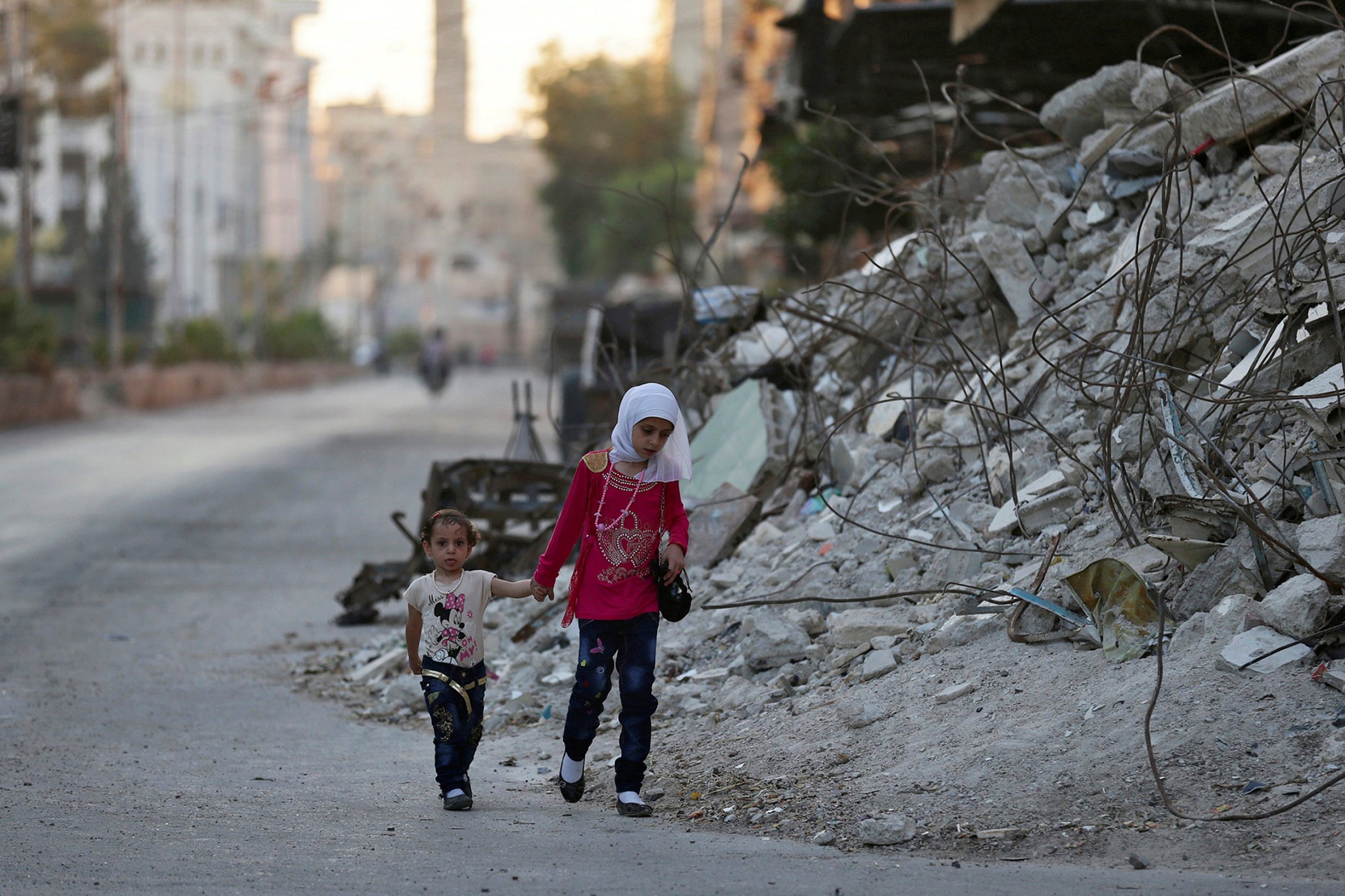
Thousands of children living in war zones and conflict-affected countries have been detained without charge as national security threats, according to a new report from Human Rights Watch.
Untold numbers of children under the age of 18 have died in custody or have been tortured for their alleged association with armed militant groups, including ISIS and Boko Haram, the international human rights organization said on Thursday. The report looks at the situation for detained children in Afghanistan, the Democratic Republic of the Congo, Iraq, Israel and the occupied Palestinian territories, Nigeria and Syria.
The U.S. is also included in the report as it detained more than 2,400 children in Iraq between 2003 and 2008; according to authorities, they were arrested for "anti-coalition activity" such as planting improvised explosive devices or acting as lookouts for insurgents. At least 15 children were detained by the U.S. at Guantánamo Bay, including some for up to a decade.
Children are often rounded up by authorities in large sweeps or are detained because of the activity of family members, in addition to being arrested for criminal offenses. Human Rights Watch said babies and small children are detained when their mothers are arrested on "suspicion of security-related offenses." The organization estimates that hundreds of children are detained in these countries at any given time.
"Governments are trampling on children's rights in a misguided and counterproductive response to conflict-related violence," Jo Becker, children's rights advocacy director at Human Rights Watch, said in a statement. "The indefinite detention and torture of children needs to stop."
Human Rights Watch interviewed dozens of former detainees who said they faced cruel and violent treatment at the hands of officials, including rape, electric shocks, beatings and threats of execution. These methods were often used to try to extract confessions from them.
Many children detained in Afghanistan, Nigeria, Somalia, Syria and Iraq—where 314 children, including 58 girls, were being held in detention facilities as of December 2015—are denied access to lawyers or relatives and are often forced to remain in overcrowded cells with adults, increasing their risk of physical or sexual violence, the report says. In Afghanistan, children may face torture at a higher rate than adults: According to U.N. data, 42 percent of children interviewed between 2013 and 2014 who had been detained said they were subjected to torture or ill treatment, 7 percent more than adults.
Access to food and medical care for detained children is also, in many cases, poor. Lack of medical care, starvation, dehydration or torture has resulted in the deaths of "unknown numbers of children" in Nigeria and Syria, Human Rights Watch said.
Some of the countries Human Rights Watch focused on have amended their laws to increase the scope of what constitutes security threats and counterterrorism, allowing authorities to detain children for longer periods of time. The report uses the example of Israel, which tries between 500 and 700 Palestinian children in military court every year, largely for throwing stones at Israeli soldiers or settlers in the West Bank.
In Nigeria, Boko Haram has recruited hundreds of children as child soldiers and used dozens—mainly girls—as suicide bombers. As a result, the government has detained hundreds of people, largely boys and men and often on "flimsy evidence," on suspicion of being part of the group, according to the report.
Human Rights Watch also warns that detaining children actually increases the risk of violence as children who are ill-treated "may easily become alienated and seek retaliation by joining armed groups." Children detained with adults can also learn criminal behavior from older prisoners.
"The alienation felt by children drawn to militant groups will only be compounded by torture and other abuse suffered at the hands of the authorities," Becker said. "Detaining children is the wrong way to deter them from involvement in future violence."
Uncommon Knowledge
Newsweek is committed to challenging conventional wisdom and finding connections in the search for common ground.
Newsweek is committed to challenging conventional wisdom and finding connections in the search for common ground.
About the writer
Before joining Newsweek, Lucy Westcott was an editorial fellow at The Wire. Previously a United Nations correspondent for the Inter ... Read more
To read how Newsweek uses AI as a newsroom tool, Click here.








